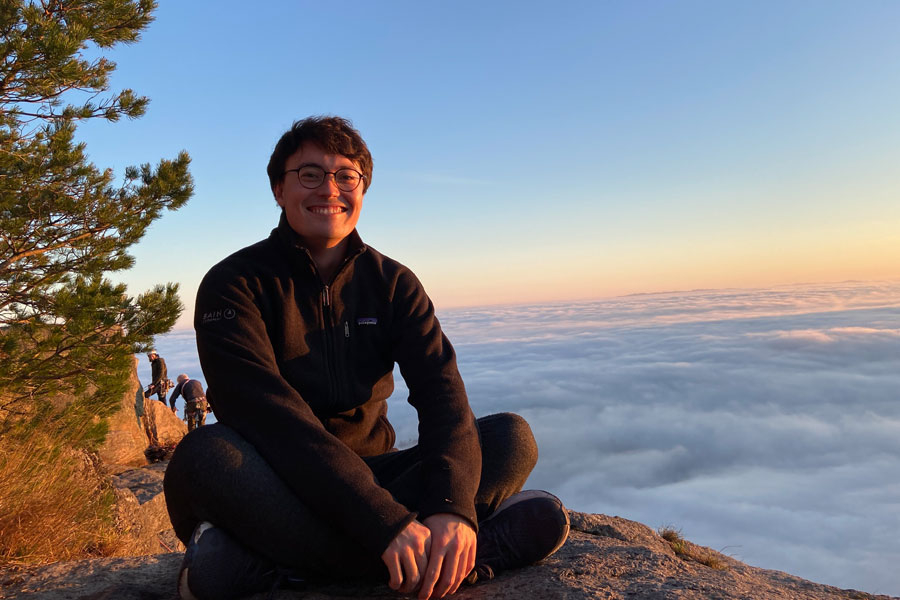Combining Business and International Development Studies

Gen ShiraishiINSEAD MBA & SAIS MAIR Dual-Degree '221. What encouraged you to apply to Johns Hopkins SAIS?Ever since completing my undergraduate degree in international relations at Georgetown University’s School of Foreign Service, I’ve always been keen on pursuing an advanced degree in international relations, specifically focused on international development. At the same time, my experiences in management consulting inspired me to pursue an advanced degree in business as well, which led me to my decision to do a dual-degree. SAIS was one of the few schools with a top international development program, offering a dual-degree with multiple top MBA programs. Ultimately, I chose the INSEAD + SAIS program because it offered the unrivaled opportunity of getting both degrees in 2.5 years across campuses in France, Italy and Washington DC.2. What program are you in and what do you hope to gain from it?I am in the INSEAD MBA + SAIS MA in International Relations dual-degree program. At SAIS, I am doing the International Development concentration (IDEV). Through my dual-degree, I’m hoping to gain strong academic foundations in both business & international development, as well as a unique perspective on areas where the two fields intersect. The dual-degree has really lived up to my expectations as I’ve already had the opportunity to gain some work experience in these areas of intersection, including experiences leading a team through an end-to-end impact investing process and leading the precision agriculture business development efforts for a UNICEF-backed drone start-up in South Africa.3. As a Dual-Degree how has SAIS added to your experiences from INSEAD?The SAIS experience could not be more different from the INSEAD experience, which is what I love about it. As you’d expect, the INSEAD education followed more of a business mindset, focused primarily on teaching us practical skills like team building in cross-cultural contexts, financial analysis, negotiation, etc. SAIS is much more traditional and academic, encouraging us to dive deep into the subject matter of our classes and really build rigorous academic expertise. I think the two contrasting approaches are quite representative of the differences between the public and private sectors more broadly, and I really appreciate learning how to navigate both – kind of like a chameleon!4. What were you doing before attending the school?Before starting my dual-degree, I was working as a management consultant at Bain & Company in Washington, DC. Alongside my work at Bain, I pursued volunteer opportunities in international development, including 2 pro-bono consulting projects in which I consulted for a Pakistani ridesharing start-up that offers safe transportation options to women and a DC-based NGO that provides coaching programs to underserved youth communities in Liberia. To gain some experience in the field, I also took 6 months off from Bain in 2019 to work at Innovations for Poverty Action in Malawi and support randomized control trials. It was my first time living and working on the continent and was an amazing experience to immerse myself in rigorous international development work.5. What has been one of your favorite experiences or classes at the school so far?The two international development courses I am taking right now have been incredible in giving me a strong theoretical foundation in the field. On one hand, my Developmental Strategies course with Professor Brian Levy has opened my eyes to the critical power and political economic dynamics that underlie economic development. Concurrently, my Key Issue in International Development course with Professor Arntraud Hartmann is teaching me how development works in practice through donor conference simulations. My other two courses, Multiculturalism and the Human Rights of Women and Global Food Systems and Policy, have perfectly complemented my core development courses by equipping me with critical issue-specific lenses.6. What do you hope to do with your degree after you graduate?I’ll definitely pivot my career in a direction that allows me to leverage the unique perspectives I’ve gained from my dual-degree – most likely towards private sector-led development initiatives. I’m still in an exploratory phase within this niche, looking into development consulting, impact investing, social enterprises, corporate social responsibility, etc., but I feel like I’ve already made tremendous progress in navigating my career in this direction and I can’t wait for what is to come.
Back to Student Stories